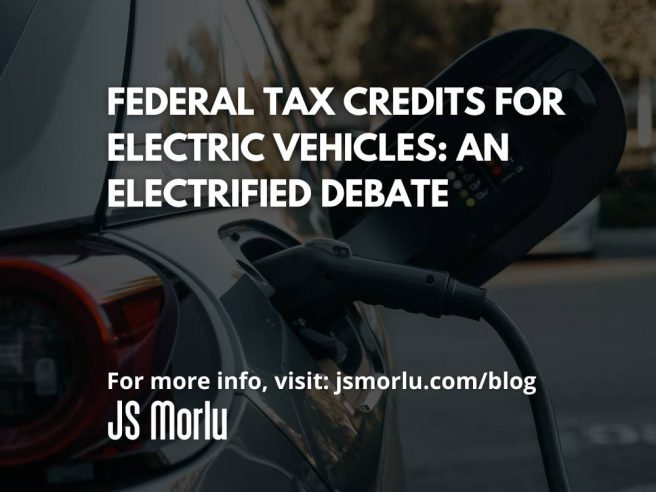The debate over federal tax credits for electric vehicles (EVs) remains as dynamic as the vehicles themselves. Designed to encourage EV adoption and support sustainability goals, these tax credits have sparked discussions on their efficacy, fairness, and long-term impact. While some hail them as pivotal for combating climate change, others critique their costs and uneven benefits. Let’s explore this electrified conversation.
The Role of Federal EV Tax Credits in the U.S.
Federal tax credits for EVs have been a cornerstone of environmental and economic policy. They aim to lower the financial barrier for consumers purchasing EVs, which typically carry higher upfront costs than traditional vehicles. The Biden administration, through the Inflation Reduction Act (IRA), expanded these credits, making more EV models eligible, including popular names like the Tesla Model Y, Chevrolet Bolt EV, and Ford F-150 Lightning.
To stimulate U.S.-based manufacturing, some of the credits are now tied to stricter domestic sourcing requirements for EV batteries. This approach aims to reduce dependency on foreign supply chains and bolster the U.S. economy. However, this policy direction stands in stark contrast to criticisms from previous administrations, including former President Trump, who argued that such subsidies distort free markets and unfairly burden taxpayers.
The Impact on Consumers: Affordability and Accessibility
Federal tax credits play a crucial role in determining the affordability of EVs. Popular models like the Rivian R1T, Hyundai Ioniq 5, and Lucid Air often come with hefty price tags. For many buyers, these credits can tip the scales in favor of purchasing an EV. However, political shifts and economic considerations could influence the future of these incentives.
The Arguments for EV Tax Credits
- Accelerating EV Adoption
EV tax credits directly lower the cost of ownership, enabling wider adoption. According to the Alliance for Automotive Innovation, EV sales jumped by 40% in 2023, a growth significantly attributed to federal incentives. Advocates argue that these credits bridge the affordability gap until EVs achieve cost parity with traditional vehicles. - Meeting Climate Goals
EVs emit significantly fewer greenhouse gases over their lifetimes compared to gas-powered vehicles. With transportation as the largest source of U.S. emissions, supporting EV adoption aligns with both national and global climate commitments. - Strengthening Domestic Manufacturing
By incentivizing domestic EV and battery production, federal credits aim to position the U.S. as a leader in clean energy innovation. As Senator Debbie Stabenow noted, such policies help ensure that “America—not China—leads the way in the clean energy revolution.”
The Arguments Against EV Tax Credits
- Disproportionate Benefits for the Wealthy
Critics argue that EV tax credits often favor high-income households. Even with credits, luxury EV models remain inaccessible to many middle- and low-income families. According to MarketWatch, the primary beneficiaries are households earning $200,000 or more annually, underscoring concerns about fairness. - Questionable Environmental Impact
While EVs are marketed as greener alternatives, their actual environmental benefits can vary by region. In areas reliant on coal-fired electricity, the emissions reduction from EVs may be negligible, raising questions about the overall effectiveness of these credits. - Cost to Taxpayers
Federal EV incentives are not cheap. The Congressional Budget Office estimates the program costs billions annually. Critics suggest reallocating these funds toward renewable energy infrastructure—such as solar or wind power—could yield higher environmental and economic returns.
Can EV Tax Credits Be Improved?
Rather than eliminating the program entirely, many experts advocate for reforms to maximize its benefits. Suggested adjustments include:
- Targeted Eligibility Criteria: Focus credits on middle- and low-income households, ensuring broader accessibility.
- Performance-Based Incentives: Tie credits to a vehicle’s actual emissions reduction or align with cleaner energy grids.
- Revenue-Neutral Alternatives: Implement systems like feebates, where fees on less efficient vehicles fund rebates for zero-emission models.
According to Daniel Sperling from UC Davis, such modifications could enhance the program’s fairness and environmental impact without dismantling its structure.
A Fork in the Road
The debate over EV tax credits mirrors broader challenges in transitioning to a sustainable future. Striking the right balance between environmental goals, economic equity, and fiscal responsibility will require thoughtful policies and collaborative solutions. For now, as EV technology evolves and public demand grows, these credits remain a key factor in driving the shift toward a cleaner transportation future.
JS Morlu LLC is a top-tier accounting firm based in Woodbridge, Virginia, with a team of highly experienced and qualified CPAs and business advisors. We are dedicated to providing comprehensive accounting, tax, and business advisory services to clients throughout the Washington, D.C. Metro Area and the surrounding regions. With over a decade of experience, we have cultivated a deep understanding of our clients’ needs and aspirations. We recognize that our clients seek more than just value-added accounting services; they seek a trusted partner who can guide them towards achieving their business goals and personal financial well-being.
Talk to us || What our clients says about us

